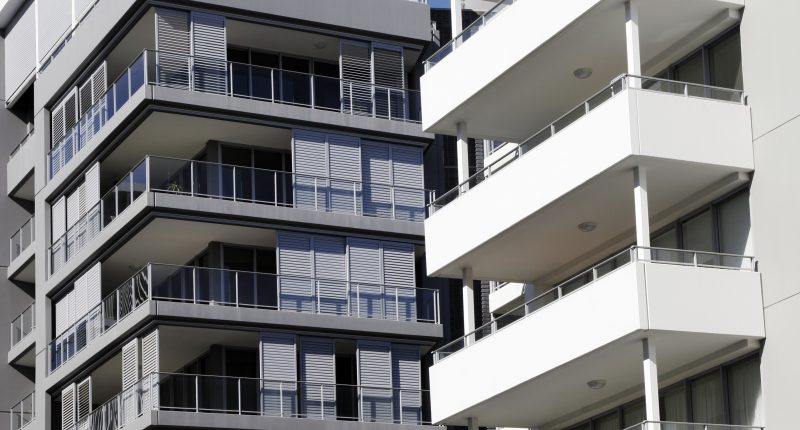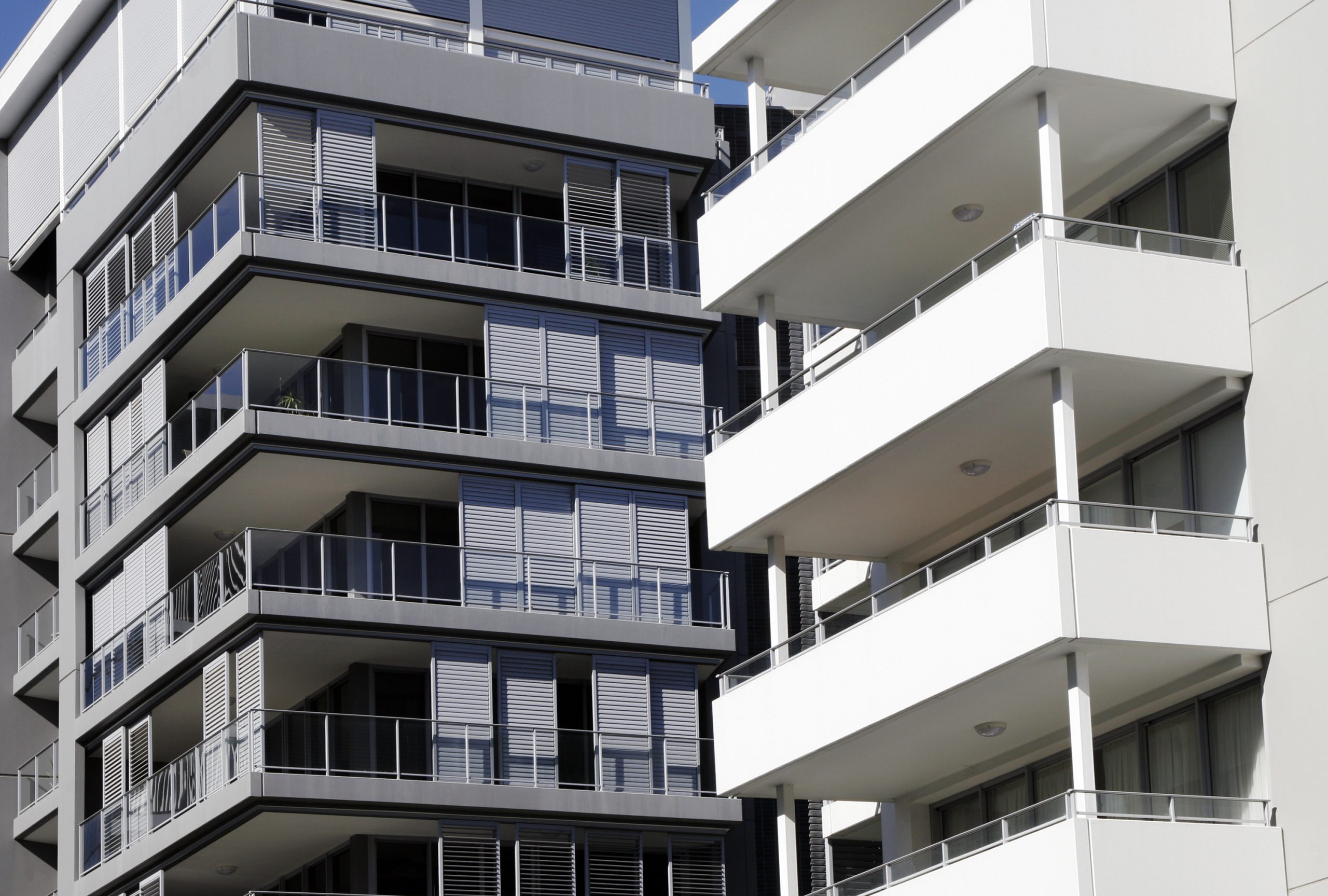- The supply of apartments is set to reach ‘crisis’ levels in a few years as investor and building activity tapers off
- According to Urbis and the Property Council, apartment supply in Australia’s three major capital cities will be at “crisis” levels in 2024
- Knight Frank also noted that the supply for apartments over the next three years is down 36.1 per cent over the previous three years
- Property Council chief executive Ken Morrison said that the reduction in building activity would see the loss of 30,000 construction jobs
- Knight Frank head of residential Shayne Harris said developers are likely to be lured back by cheap finance, thinning supply and low vacancy rates
The supply of apartments is set to reach ‘crisis’ levels in a few years as investor and building activity tapers off.
According to Urbis research commissioned by the Property Council, apartment supply in Australia’s three major cities will be at ‘crisis’ levels by 2024, with development 20 per cent of 2018 levels.
Similarly, recent research from Knight Frank said that Australia’s national apartment pipeline will plummet over the next three years, with only 86,400 new apartments planned across Sydney, Melbourne, Brisbane, Gold Coast and Perth.
This number is down 36.1 per cent from the 135,300 new apartments built over the previous three years.
This forecasted ongoing decline in apartments comes in a year where the composition of sites purchased by developers for high-density projects fell from a share of 71.1 per cent in 2019 to 64.1 per cent in 2020, according to Knight Frank.
In addition, total building approvals for new apartments dropped below 40,000 for the first time since 2013, with only 34,100 new approvals in 2020.
Property Council chief executive Ken Morrison said that the reduction in building activity would see the loss of 30,000 construction jobs across Melbourne, Sydney, Brisbane and Perth in the next few years.
“Apartment construction is a critical component of Australia’s future housing supply and a vital job-creator for our economy,” he said.
“While approval numbers are increasing, they mask a decline in construction activity that will lead us to a severe structural undersupply by 2024. Without changes in policy, our apartment building industry will shed 30,000 direct jobs and produce $5.9 billion less in housing assets over the next four years.”
Knight Frank head of residential Shayne Harris said developers are continuing to shift their risk by diversifying their portfolios, and as a result, we are seeing more focus towards owner-occupier boutique apartment developments.
“Although we’re in uncertain times, we can’t underestimate the impact investors will have on the high-density apartment market as they start to return across the country,” he said.
“It’s only time before they’re lured back to the new apartment market given the cheap finance, a thinning new supply pipeline and lowered residential vacancy rates.”
Although Sydney recorded the highest volume of high-density sales, the apartment pipeline is still expected to plunge by 2024, with Knight Frank pointing out important factors such as the difficulty in getting the required number of pre-sales and timely development approvals processes.
Despite the slowdown, Melbourne has emerged as the focal point for new built-to-rent, according to Knight Frank, with more than 6000 developments in the pipeline at the end of 2020.
Knight Frank research found that the Gold Coast recorded a major 238 per cent increase in major site sales in 2020, while Brisbane sales plunged down 86 per cent as Perth enjoyed a rise in annual sales turnover of 10.7 per cent in 2020.
Property Council said stimulus measures directed at the detached housing sector had not moved the dial for apartment sales and pointed the finger at surcharges on foreign investment.
“Over recent years we’ve seen a proliferation of new taxes and regulations across Australia that have been a handbrake on investment and directly impacted our levels of apartment supply,” Mr Morrison said.
Mr Morrison said that with three to five years between project inception and completion it was imperative that governments act now to boost apartment investment and avoid a supply crunch in 2024.
“This is a wake up call for governments as our biggest apartment markets will welcome growing numbers of people once COVIDsafe immigration inevitably returns. Governments can unlock a wave of new investment by removing recent property tax hikes and overseas investor surcharges.
“International buyers and build to rent investors will be key to the next generation of projects and further opportunities exist to encourage these investors through planning system improvements and stamp duty relief.”







